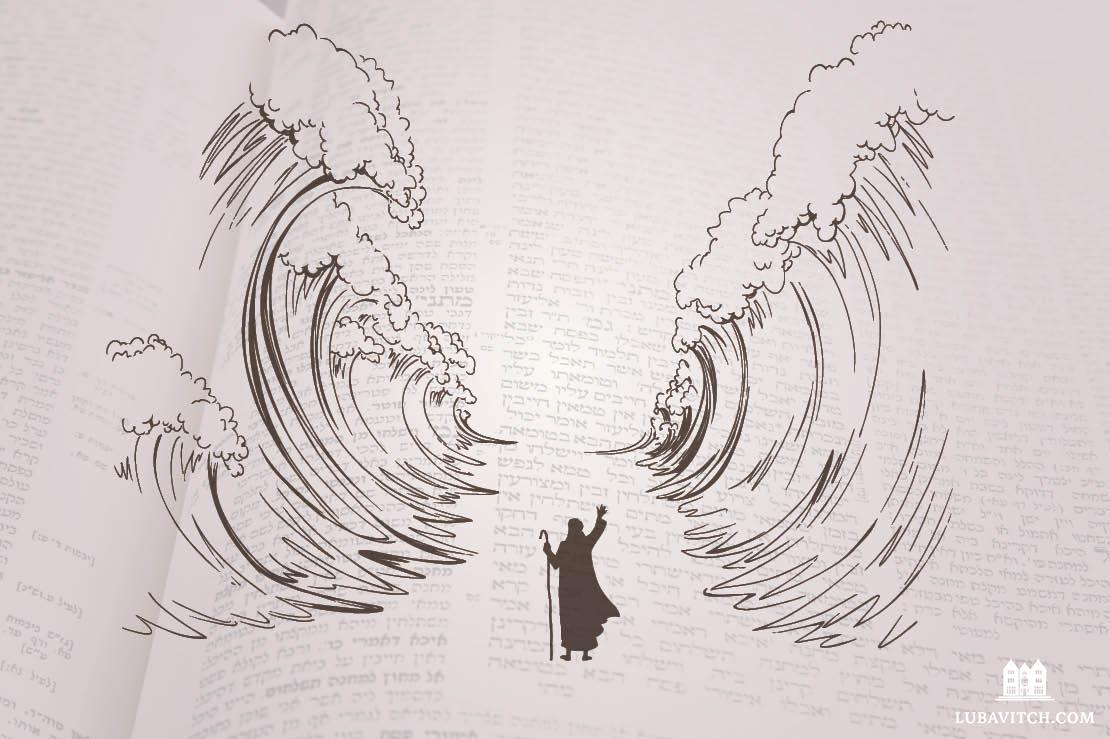Passover is packed with more traditions, customs, and historic significance than any other holiday on the Jewish calendar. The Talmud dedicates considerable discussion to these, and derives a great many lessons from the story and celebration of our Exodus.
A
The splitting of the Red Sea was not the only time a miracle of this nature occurred. The Talmud tells of another such instance when:
- Rabbi Akiva left his wife (at her urging) to study Torah late in life
- Rabbi Zeira made aliyah from Babylon to the Holy Land
- Rabbi Pinchas ben Yair went to redeem a Jew in captivity
- Rabbi Yochanan ben Zakkai escaped Jerusalem during the revolt against the Romans
B
From the statement, “You shall keep watch over the matzahs” (Exodus 12:17), the Talmudic sage Rabbi Yoshia derives that:
- If someone encounters an opportunity to fulfill a mitzvah, they must stop to do so even if they are on their way to fulfill another mitzvah
- One must take care not to allow the matzah to rise
- One must keep watch over the water used to make the matzah so that it maintains a certain temperature
- At the Seder, one must never take their eyes off the matzah to prevent the afikoman from being stolen
C
According to Rabbi Yehoshua ben Korcha, G-d chose to reveal himself to Moses in a burning bush to reflect that:
- He feels the burning pain of the people suffering in exile
- He is present everywhere, even in a simple thorn bush
- Just as the burning bush was not consumed by the fire, so the Jewish people will not be consumed by exile
- He will reveal Himself at Mount Sinai, which was covered with bushes of this type
D
One who missed bringing the Passover sacrifice (for legitimate reasons) is given a second chance to do so on the day of Pesach Sheini (the 14th of Iyar). This is unusual, for rarely does one get a second chance to fulfill a mitzvah they missed. To make this point, the Talmud uses which of the following expressions:
- “Do not allow a mitzvah that comes your way to become leavened”
- “That which is crooked cannot be made straight”
- “Run like a deer to fulfill the Divine will”
- “Do not say, when I will have time, I will attend to it”
E
One of the major arguments between the Talmudic sages and those who did not accept the Oral Law revolved around which of these questions:
- Whether we are required to count the Omer even though the Temple has been destroyed and sacrifices are no longer made
- Whether the command to eat matzah applies to all the days of Passover or only the first night
- Whether we start counting the Omer on the day after the first day of Passover or the day after the first Shabbat of the seven days of Passover
- Whether the splitting of the sea happened on the seventh or eighth day of Passover
Answers:
A3 (Chulin 7a)
B1 (Mechilta Bo 12:17)
C1 (Shemot Rabba 2)
D2 (Berachot 26a – Kohelet 1:15)
E3 (Menachot 65ab)

Be the first to write a comment.